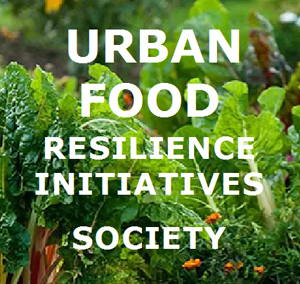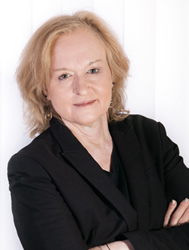
Friday April 19, 2024 | VICTORIA, BC [Updated April 20, 2024]
by Mary P Brooke | Island Social Trends
Prime Minister Justin Trudeau was in Victoria this morning, highlighting Budget 2024 measures to strengthen Canadian research and education.
He was accompanied by now Minister of Citizens’ Services Terry Beech, MP (Burnaby North–Seymour) who when first elected into federal politics was appointed by Trudeau in 2015 as the Parliamentary Secretary for Science. Today they met with students at the University of Victoria (UVic) and then more formally addressed media.
The prime minister’s announcement was about a package of over $4.6 billion to strengthen Canadian research and innovation. The investment is intended “to secure Canada’s competitive edge”.
“We are meeting the moment,” said Trudeau.

“We need to support and empower tomorrow’s problem solvers and make sure every generation reaches their full potential,” it was stated in today’s news release from the Prime Minister’s office.
“Gen Z and Millennials are the engine of our economy. Everything that is created, built, served, and sold in Canada is increasingly being done by millennials and Gen Z,” the prime minister’s office stated.

“They’re the young parents, the students doing cutting-edge research, the young entrepreneurs with startup ideas. Canada’s success depends on their success.”
In person at UVic, Trudeau today, investments in technology and AI will support young adults and help the economy. Innovators and researchers are key.

“That’s why we’re investing in cutting-edge research – to create more good jobs, including in innovation and technology – while making education more affordable. The Prime Minister, Justin Trudeau, today highlighted an over $4.6 billion package of measures from Budget 2024 to strengthen Canadian research and innovation.
Minister Beech — is himself a UVic alumnus — said he has “worked with some of the youngest, smartest minds across the country to really see the impact of what happens when you invest in research”.
“This is about investing in the future of our country and in future generations,” said Beech, adding that so many problems will be solved with the investments such as announced in Budget 2024.
At the event, Beech mused on for a bit about how he was raised on Vancouver Island and got his educational start at UVic.
UVic appreciated the visit:
Uvic President Kevin Hall thanked Trudeau for his government’s ongoing support of research at the Victoria campus and across the country.

“The support that the government gives has tremendous impact on our students and on our communities,” said Hall. Accelerating Community Energy Transformations is a project that has been advanced with the help of federal investment. Hall thanked UVic Vice President of Research and Innovation, Lisa Kalynchuk who also attended there today.
Referring to the research and grad students assembled behind the podium, Hall said: “These hearts and minds are going to solve problems that matter to Canadians.”
$4.6 billion package in three parts:
Providing $2.6 billion in core research grant funding, scholarships, and fellowships to support our researchers and their ground-breaking discoveries:
- This includes $1.8 billion in core research grant funding for a 30 per cent increase over five years of Canada’s core research grant programs that support faculty-led research projects. It will indirectly support thousands of graduate student and post-doctoral fellows with their research, including their work on climate action, health emergencies, artificial intelligence, and psychological health.
- And $825 million over five years to the granting councils to increase the annual value of master’s and doctoral students’ scholarships to $27,000 and $40,000, respectively, and post-doctoral fellowships to $70,000. To make it easier for students and fellows to access support, the enhanced suite of scholarships and fellowship programs will be streamlined into one talent program. This new program will also increase the number of graduate students and post-doctoral fellows benefiting from research scholarships and fellowships by approximately 1,720 each year.
- This funding will also provide $30 million over three years for Indigenous researchers and their communities, which would be distributed with $10 million each for First Nation, Métis, and Inuit partners.
- To provide better co-ordination across the federally funded research ecosystem, we will bring together our three research funding organizations within a single new capstone research funding organization. The granting councils will continue to exist within this new organization, and continue supporting excellence in investigator-driven research, including linkages with the health portfolio.
- Together, these measures will play a critical role in not only supporting Canadian researchers in solving the world’s greatest challenges – but building a generation of highly educated, highly skilled individuals as a foundation of Canada’s future economic growth and prosperity.
Investing $1.3 billion to keep post-secondary education affordable:
- This funding will extend for an additional year the increase in full-time Canada Student Grants from $3,000 to $4,200 per year, and interest-free Canada Student Loans from $210 to $300 per week. This includes increases to other Canada Student Grants by 40 per cent.
- It will also increase the housing allowances used by the Canada Student Financial Assistance Program when determining financial need, which will provide additional student aid to approximately 79,000 students each year.
- These investments will make sure that our younger generations can access quality post-secondary education at an affordable cost.
Investing $734 million to support Canada’s world-leading research infrastructure and institutes:
- Supporting TRIUMF, Canada’s sub-atomic physics research laboratory, located at the University of British Columbia. This investment will upgrade infrastructure at the facility, keep Canada at the forefront of physics research, and enable new medical breakthroughs and treatments, from drug development to cancer therapy.
- Investing in CANARIE, a national not-for-profit organization that manages Canada’s ultra high-speed network to connect researchers, educators, and innovators.
- Providing funding to Saskatoon-based Canadian Light Source, helping scientists and researchers to continue making breakthroughs in areas ranging from climate-resistant crop development to sustainable mining processes.
- Supporting the Arthur B. McDonald Canadian Astroparticle Physics Research Institute, headquartered at Queen’s University. This funding will help engineers, researchers, and scientists innovate in areas like clean technology and medical imaging.
- Investing in the University of Saskatchewan’s Centre for Pandemic Research, advancing the study of high-risk pathogens to support vaccine and therapeutic development.

===== ABOUT THE WRITER:
Island Social Trends Editor Mary P Brooke, B.Sc. has been covering news with political analysis through a socioeconomic lens on south Vancouver Island since 2008.
Her publication series spans now over 16 years: MapleLine Magazine (2008-2010), Sooke Voice News (2011-2013), West Shore Voice News (2014-2020), and now Island Social Trends (2020 to present online, and also biweekly in print starting in 2024).
- Since covering the COVID pandemic daily during 2020-2021 and into 2022, Ms Brooke now reports with the BC Legislative Press Gallery.
Mary P Brooke was nominated in 2023 for a Jack Webster Foundation journalism award that recognizes a professional woman journalist for contributing to her community through journalism.
Ms Brooke also now leads a non-profit organization called Urban Food Resilience Initiatives Society.






